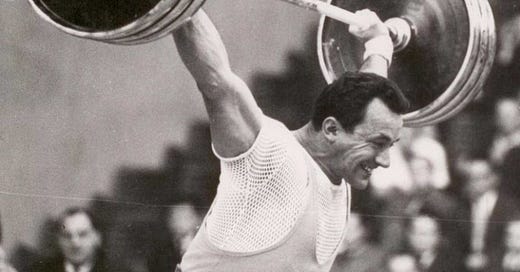The Cult of the Body
Schmitt, Strauss, Heidegger, Arendt, Adorno, Benjamin et. al on Fitness Culture
Do you ever have philosophers’ voices in your head? Do you ever wonder what they would say about the latest issues of the day? I do, and so I thought that, from time to time, I would moderate fictive “panels” in which important thinkers might participate. This is my attempt to model the fantastical thinking that is too often missing in traditional acade…
Keep reading with a 7-day free trial
Subscribe to What Is Called Thinking? to keep reading this post and get 7 days of free access to the full post archives.



